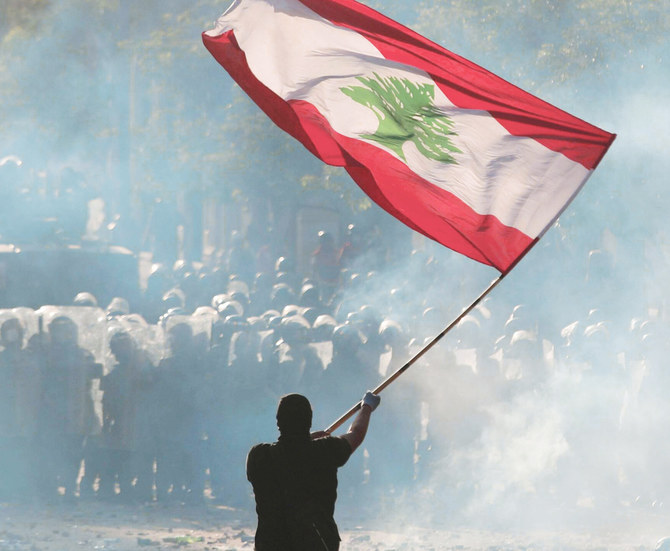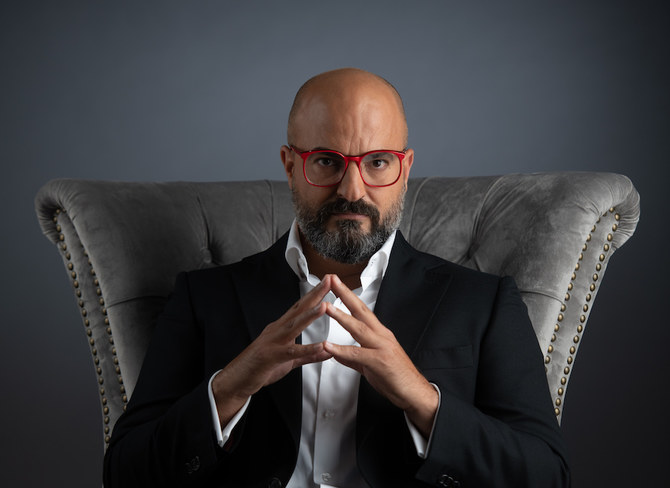
By NAJIA HOUSSARI -- arabnews.com -- BEIRUT: The Lebanese Parliament discussed on Friday a letter from President Michel Aoun requesting assistance in the forensic audit of the Banque du Liban’s accounts. The request overthrew the contract that the Lebanese government signed with the restructuring consultancy Alvarez & Marsal to conduct an audit of the central bank’s accounts. This is because the Banque du Liban is reluctant to provide information to the firm as it contradicts the Monetary and Credit Law and banking secrecy law. At the end of the session, members of Parliament endorsed a recommendation that “the accounts of the Banque du Liban, ministries, independent interests, councils, financial institutions, municipalities and all funds undergo a forensic audit in parallel without any hindrances and without invoking banking secrecy or anything else.” The debate in the UNESCO hall reflected a division between the parliamentary blocs. The Progressive Socialist Party, the Amal Movement, and the Future blocs supported “a comprehensive audit of all institutions,” while the MPs of the Free Patriotic Movement and the Lebanese Forces insisted on “auditing the accounts of the Banque du Liban first.”
The division was reflected in two bills, one of which was submitted by the Lebanese Forces bloc, suspending the banking secrecy law for one year, to be effective from the date of publication of this law in all matters related to financial audits and/or criminal investigations decided by the government on the accounts of the Banque du Liban. The bill of the Amal Movement MPs expands the scope of the forensic audit to include “all ministries, institutions, departments, funds, and councils without exception, discretion, changeability or maliciousness.” The Hezbollah bloc appeared to be the most embarrassed bloc among its two allies, the Amal Movement and the Free Patriotic Movement. The head of the bloc, MP Mohammad Raad, said during the session: “We support the forensic audit of the Banque du Liban, and we agree that the audit will be conducted in all public institutions, and we propose to endorse the temporary suspension of banking secrecy.”
by reuters — PARIS: France will host a video conference with international partners on Dec. 2 to discuss humanitarian aid for financially-strapped …

by ALI KHALED -- arabnews.com -- DUBAI: “The material that appeals to the younger generation is less related to geopolitics and more related to values and emotions: The videos that expose lying, hypocrisy and contradictions, and the filthiness of the political elite across the board, are basically the hits among this generation.” Sky News Arabia’s Nadim Koteich is talking about the radical shift in the Middle East’s media landscape in recent years. And the Lebanese presenter is well placed to do so, as a veteran journalist and broadcaster adapting to that shift. He is known for his biting satirical and political commentary which has proven hugely popular online. His new Monday-to-Friday show, “Tonight With Nadim,” is, he says, a natural progression of his previous work. “Even the most traditional giants in the market are adopting digital strategies in terms of distribution and channeling the message,” he tells Arab News. “My show airs at midnight, but we post it completely on digital before it hits the screen. Before, the (TV) screen was sacred. Now, whenever it’s ready, just put it up. So what kind of short format is reaching the audience becomes a question of content.” Koteich’s 25-minute show aims to tackle the issues of the day via three segments: ‘Fake News’ — two or three quick stories that look to “decode” events and statements; ‘3D’ — a satirical take on the news; and ‘Serious Talk,’ which Koteich calls a “visualized editorial” of the day. It’s a format tailored for modern audiences.
“(People under 30) don’t have the time, they don’t have the stamina, they don’t have the interest in just dry takes,” he says. “They have a love of skepticism when it comes to reading or following politics. They have so much more at their disposal than what conventional media is providing them.” Younger viewers may prefer these “media nuggets,” but Koteich is keen to ensure that older ones are not ignored. It is less about age and more about ideology, he suggests. “We are in an intellectual battle between two main projects in the region: Political Islam and national states,” Koteich, a fierce critic of Iran and Hezbollah, says. “The two audience camps are not divided not only by age groups, but also by communities. (Both have) young, old, and middle-aged groups. I think this dichotomy between age groups is a little misleading, because you need to talk about communities that are a hybrid of age groups.” Koteich, who has over 360,000 Twitter followers, has learned to tune out the background noise of social media over the years. “You grow very thick skin,” he says. “You shouldn’t take (things) personally, because there is a collapse of context when it comes to social media and it’s made the conversation very poisonous. Because people are basically talking to a screen and the emotions are edited out in a very fierce, very dehumanizing way.” This loss of context can lead to the rise of conspiracy theories, he adds.
The Daily Star — BEIRUT: Lebanon registered 1,636 new coronavirus cases and 16 deaths Wednesday, as caretaker Health Minister Hamad Hasan said …
Khazen History


Historical Feature:
Churches and Monasteries of the Khazen family

St. Anthony of Padua Church in Ballouneh
Mar Abda Church in Bakaatit Kanaan
Saint Michael Church in Bkaatouta
Saint Therese Church in Qolayaat
Saint Simeon Stylites (مار سمعان العامودي) Church In Ajaltoun
Virgin Mary Church (سيدة المعونات) in Sheilé
Assumption of Mary Church in Ballouneh
1 - The sword of the Maronite Prince
2 - LES KHAZEN CONSULS DE FRANCE
3 - LES MARONITES & LES KHAZEN
4 - LES MAAN & LES KHAZEN
5 - ORIGINE DE LA FAMILLE
Population Movements to Keserwan - The Khazens and The Maans
ما جاء عن الثورة في المقاطعة الكسروانية
ثورة أهالي كسروان على المشايخ الخوازنة وأسبابها
Origins of the "Prince of Maronite" Title
Growing diversity: the Khazin sheiks and the clergy in the first decades of the 18th century
Historical Members:
Barbar Beik El Khazen [English]
Patriach Toubia Kaiss El Khazen(Biography & Life Part1 Part2) (Arabic)
Patriach Youssef Dargham El Khazen (Cont'd)
Cheikh Bishara Jafal El Khazen
Patriarch Youssef Raji El Khazen
The Martyrs Cheikh Philippe & Cheikh Farid El Khazen
Cheikh Nawfal El Khazen (Consul De France)
Cheikh Hossun El Khazen (Consul De France)
Cheikh Abou-Nawfal El Khazen (Consul De France)
Cheikh Francis Abee Nader & his son Yousef
Cheikh Abou-Kanso El Khazen (Consul De France)
Cheikh Abou Nader El Khazen
Cheikh Chafic El Khazen
Cheikh Keserwan El Khazen
Cheikh Serhal El Khazen [English]
Cheikh Rafiq El Khazen [English]
Cheikh Hanna El Khazen
Cheikha Arzi El Khazen
Marie El Khazen